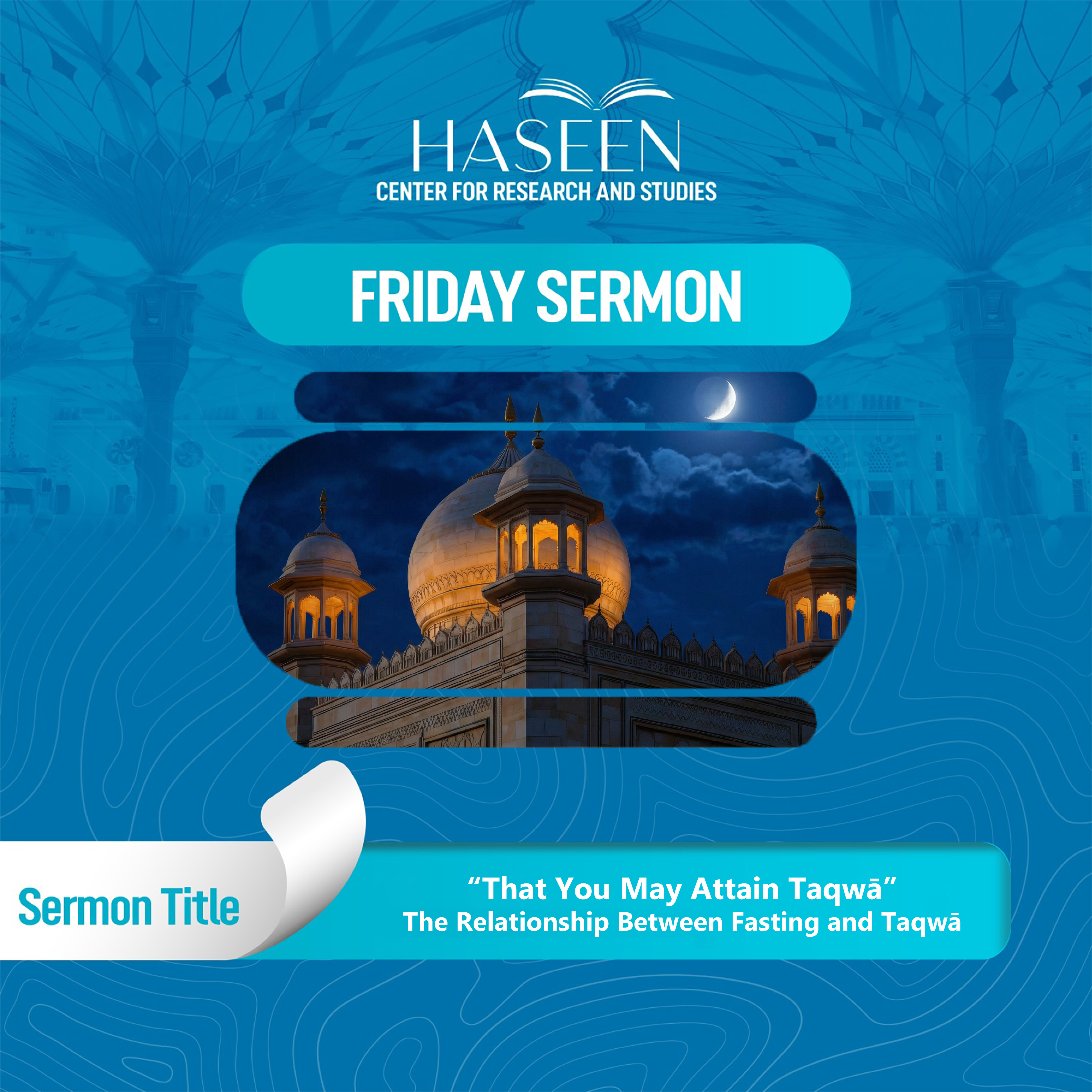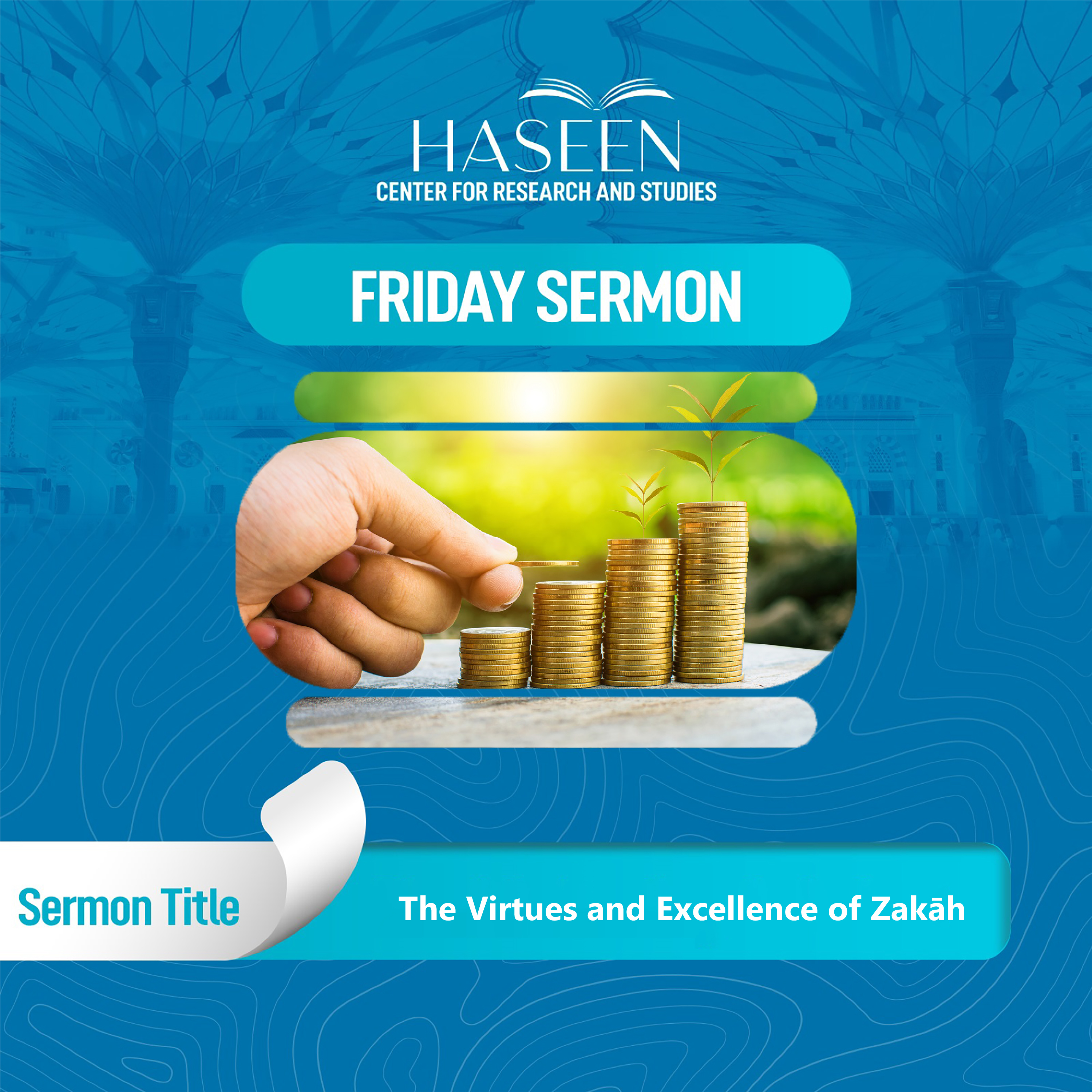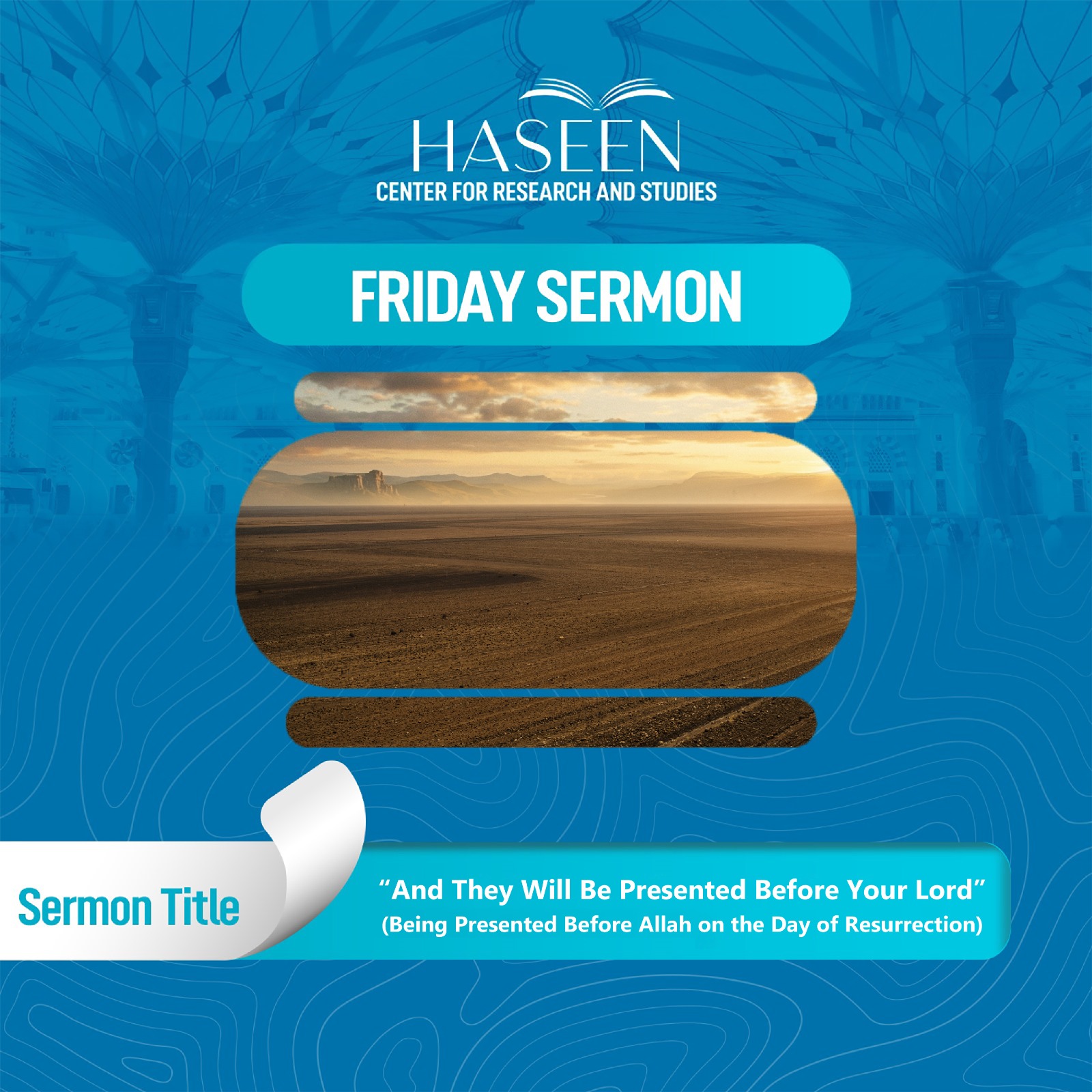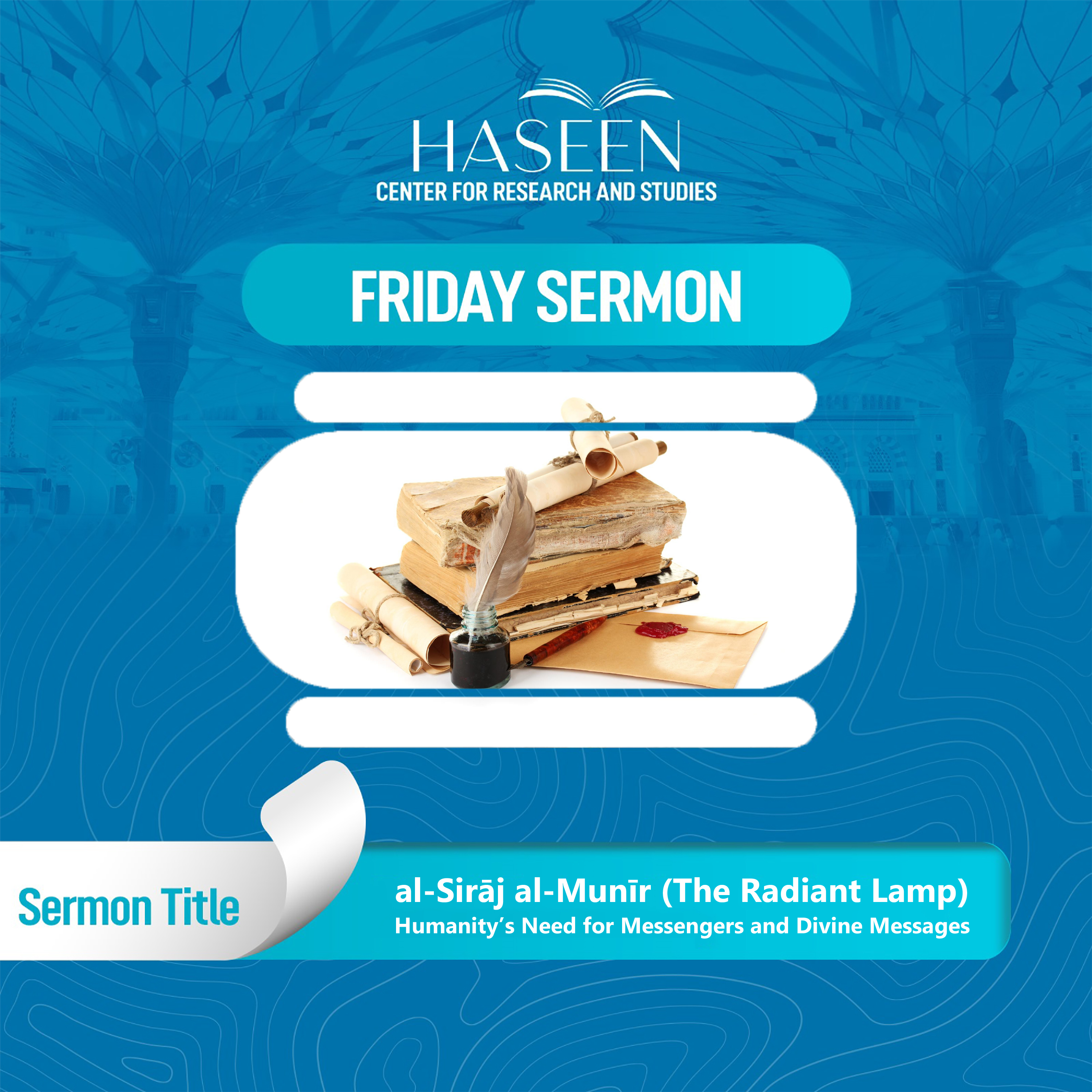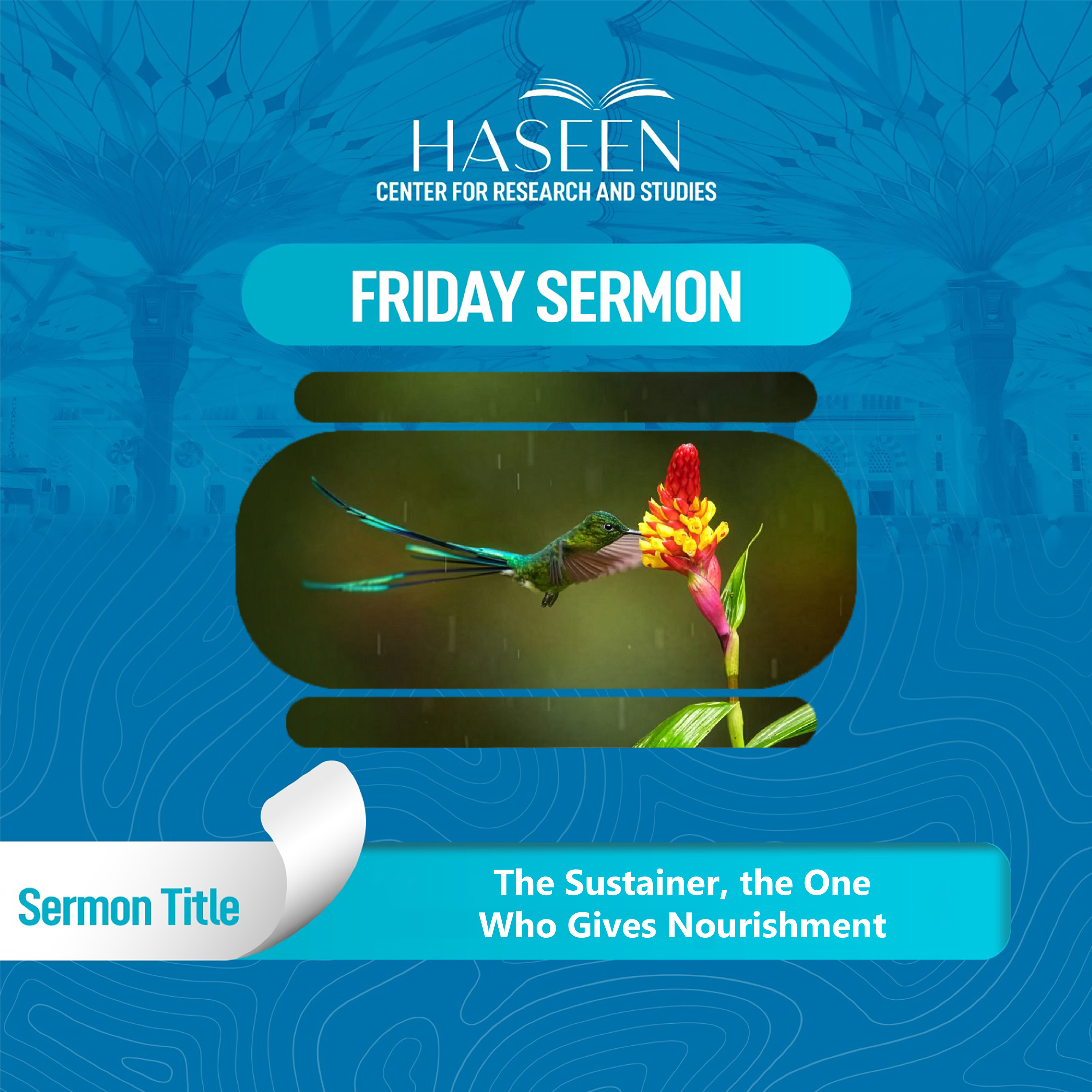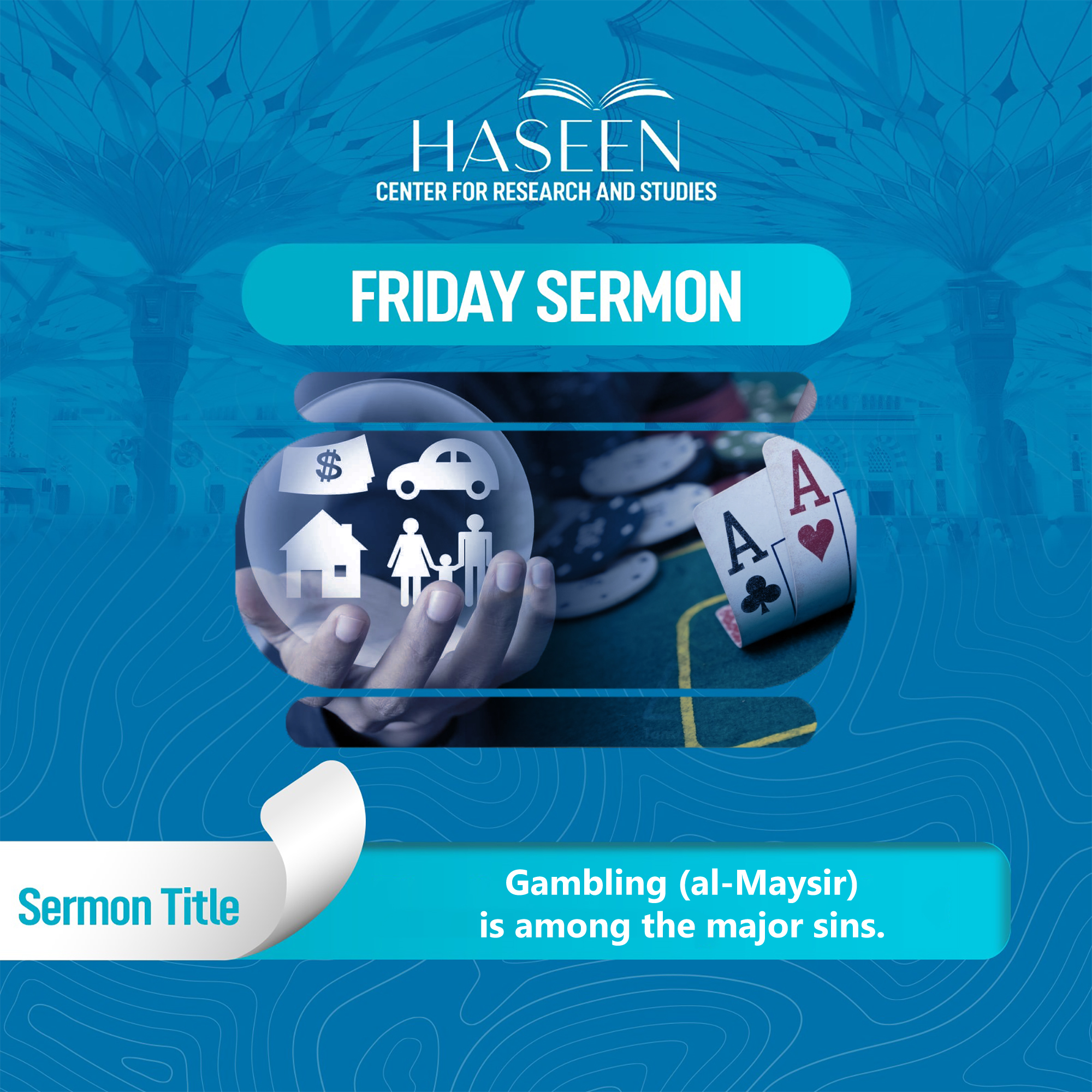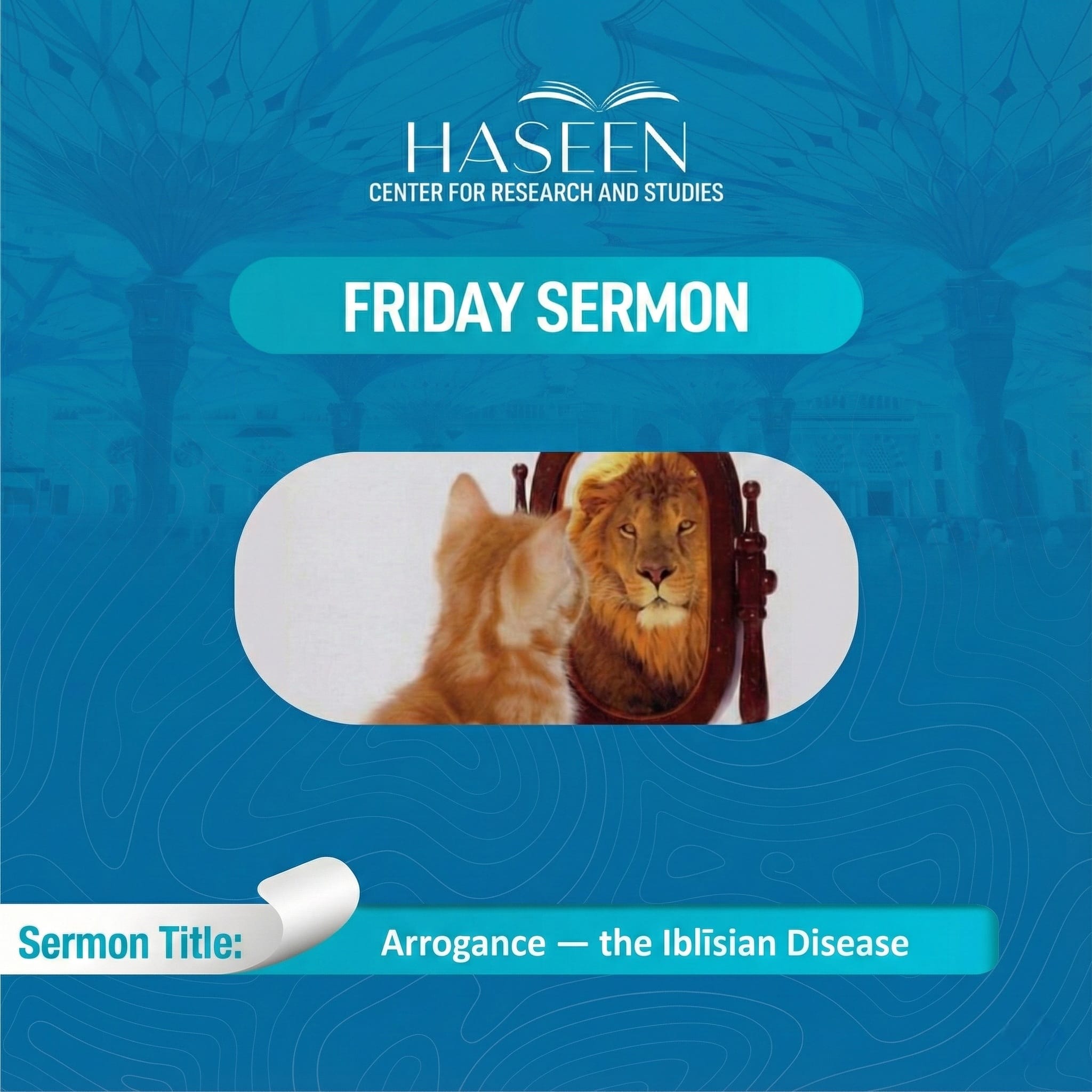Sermon Title: Pilgrimage Rituals... Wisdom and Acts of Worship
Themes of the Sermon:
1- The call of Ibrahim (peace be upon him) to Hajj.
2- The wisdom behind the legislation of Hajj.
3- Cultivating servitude and submission during Hajj.
All praise is due to Allah, the Generous, the Bestower, and I bear witness that there is no deity worthy of worship except Allah alone, with no partner, the One who bestows favor and kindness. And I bear witness that Muhammad is His servant and Messenger, sent as a mercy for mankind and jinn. May Allah exalt and send peace to, his family, his companions, and those who follow them with righteousness.
To proceed,
O servants of Allah, fear Allah with true piety, and be conscious of Him in secret and in public:
يَا أَيُّهَا الَّذِينَ آمَنُوا اتَّقُوا اللَّهَ وَكُونُوا مَعَ الصَّادِقِينَ
“O you who have believed, fear Allah and be with those who are true.” (9: 119)
O Muslims!
Allah commanded Ibrahim (peace be upon him) to build His sacred House in Mecca. When he accomplished this mission, Allah ordered him to proclaim pilgrimage to all people, as Allah says:
وَأَذِّنْ فِي النَّاسِ بِالحَجِّ يَأتُوكَ رِجَالًا وَعَلَى كُلِّ ضَامِرٍ يَأتِينَ مِنْ كُلِّ فَجٍّ عَمِيقٍ
“And proclaim to the people the Hajj [pilgrimage]; they will come to you on foot and on every lean camel; they will come from every distant pass.” (22: 27)
Muhjahid (May Allah shower him with mercy) was reported to have said, "When Ibrahim (peace be upon him) finished building the House, he was told: 'Call people to Hajj.' He said: 'How shall I say, O Lord?' He was told: 'Say: O people, respond to your Lord.' So he said it, and it settled in the heart of every believer."
Thus, Talbiyah (devotional calls) became the slogan of Hajj to Allah's call with monotheism, with voices raised and hearts certain: "Here I am, O Allah, here I am. Here I am, You have no partner, here I am."
As Ibrahim and Isma'il (peace be upon them) were building the Sacred House, they prayed Allah saying,
رَبَّنَا تَقَبَّلْ مِنَّا إِنَّكَ أَنتَ السَّمِيعُ العَلِيمُ * رَبَّنَا وَاجعَلْنَا مُسلِمَينِ لَكَ وَمِن ذُرِّيَّتِنَا أُمَّةً مُسلِمَةً لَكَ وَأَرِنَا مَنَاسِكَنَا وَتُبْ عَلَينَا إِنَّكَ أَنتَ التَّوَّابُ الرَّحِيمُ
“Our Lord, accept [this] from us. Indeed You are the Hearing, the Knowing. Our Lord, and make us Muslims [in submission] to You and from our descendants a Muslim nation [in submission] to You. And show us our rites and accept our repentance. Indeed, You are the Accepting of repentance, the Merciful.” (2: 127-128)
So Allah showed them the places to be visited during Hajj and the actions to be performed there, such as Tawaf (circumambulation), Sa'i (walking between Safa and Marwah seven times), standing at Arafat, throwing stones, and others. In this context, it is worth noting that
Hajj rituals and actions that Allah showed to Ibrahim and Isma'il (peace be upon them) are still the same rites and symbols of Muslims in their Hajj to this day.
O Muslims!
Allah has legislated for us Hajj to His Sacred House to achieve great wisdom and lofty goals:
Among them: Achieving complete slavery to Allah by obeying His command, refraining from His prohibitions, humbling ourselves before Him, submitting to His greatness, and dedicating our religion solely to Him. This servitude is unparalleled in other acts of worship. In Hajj, there is wearing of Ihram, Talbiyah with monotheism, circumambulation of the Kaaba, walking between Safa and Marwah, standing at Arafat, throwing stones at the Jamarat, shaving the head, and abstaining from prohibitions. Thus, we can say that pilgrimage is considered a comprehensive school for training the soul in servitude to Allah, the Exalted and Most High.
Reminding people of their standing before their Lord on the Day of Resurrection is one of the higher objectives of Hajj. They remember through their congregation at the plain of Arafat their standing before the Almighty, so at that time their hearts are humbled, and they supplicate Allah to overlook their misdeeds and forgive their sins.
Among the wisdom of Hajj: Manifesting the oneness of Allah and proclaiming His remembrance in every place. The pilgrim begins with the Talbiyah, unifying Allah and responding to His call, and then glorifies and remembers Allah in every ritual of Hajj until pilgrimage is accomplished. Allah (Glory be to Him) says about the higher objectives of Hajj:
لِيَشهَدُوا مَنَافِعَ لَهُم وَيَذكُرُوا اسمَ اللَّهِ فِي أَيَّامٍ مَعلُومَاتٍ عَلَى مَا رَزَقَهُم مِن بَهِيمَةِ الأَنعَامِ
“That they may witness benefits for themselves and mention the name of Allah on known days over what He has provided for them of sacrificial animals.” (Quran 22:28).
The Prophet (ﷺ) said: "Circumambulation of the Kaaba, walking between Safa and Marwah, and throwing stones at the Jamarat were all established for the purpose of remembering Allah." reported by Ahmad, Abu Dawud, and Tirmidhi.
Among the wisdom of Hajj: Inculcation of asceticism in the worldly life and attachment to the Hereafter in the Muslim's soul. When the pilgrim sheds their luxurious clothing and wears two pieces of cloth, abstains from indulging their body with perfumes, cutting their hair, trimming their nails, and covering their head, they are reminded of the shroud they will wear when they die, and the declining of worldly pleasures. Thus, their heart remains attached to the Hereafter, detached from the worldly life, mindful, and well prepared for death and what follows.
Among the wisdom of Hajj: Education people to value modesty. When the pilgrim sees people of all races and backgrounds—Arabs and non-Arabs, red and black, rich and poor—gathered together in one place, wearing the same clothing, and performing the same rituals, they are taught humility, and arrogance is stripped away. They learn that people are equal and that the most honorable among them in the sight of Allah is the most pious. The Prophet (ﷺ) said in one of his sermons during the Farewell Pilgrimage: "O people, your Lord is one, and your father is one. There is no superiority for an Arab over a non-Arab, nor for a non-Arab over an Arab, nor for a red person over a black person, nor for a black person over a red person, except in piety." reported by Ahmad.
Among the wisdom of Hajj: raising sense of unity, harmony, and cooperation, and rejecting all forms of division, disagreement, and conflict. Pilgrims enter the state of Ihram at the same time, stand at Arafat at the same time, proceed to Muzdalifah at the same time, throw stones at the Jamaraat at the same time, and perform Tawaf at the same time. All these deeds instill in their souls the concept that they are one nation and must be a united front, with one voice and one line, in order to regain their glory, honor, and strength. Allah says:
وَاعْتَصِمُوا بِحَبْلِ اللَّهِ جَمِيعًا وَلَا تَفَرَّقُوا وَاذكُرُوا نِعمَتَ اللَّهِ عَلَيكُم إِذْ كُنتُمْ أَعدَاءً فَأَلَّفَ بَينَ قُلُوبِكُمْ فَأَصبَحتُمْ بِنِعمَتِهِ إِخوَانًا
"And hold firmly to the rope of Allah all together and do not become divided. And remember the favor of Allah upon you when you were enemies and He brought your hearts together and you became, by His favor, brothers" (Quran 3:103).
O Servants of Allah!
Indeed, Hajj is a school educating the believer submission to Allah, surrendering to His command, and succumbing to His rule. Pilgrim performs a specific act of worship, at a specific time, in a specific place, wearing specific clothing, and in a specific manner. His complete surrender to all of these is a testament to his total submission to the decrees of Allah. He does not object to Allah's rulings with reason, opinion, taste, or anything else, because he knows that the matter is as Allah said:
وَمَا كَانَ لِمُؤمِنٍ وَلَا مُؤمِنَةٍ إِذَا قَضَى اللَّهُ وَرَسُولُهُ أَمرًا أَن يَكُونَ لَهُمُ الخِيَرَةُ مِن أَمرِهِم
“It is not for a believing man or a believing woman, when Allah and His Messenger have decided a matter, that they should [thereafter] have any choice about their affair.” (33: 36)
The pilgrim's response to the call of his Lord, Glorified be He, always trains him to respond to Allah's call. Whenever he hears a call from Allah, he responds quickly and willingly: "Here I am, O Allah, here I am." So when he hears, "Come to prayer, come to success," he rushes, saying, "Here I am, O Allah, here I am." And when he hears a command from Allah or a prohibition, he says, "Here I am, O Allah, here I am."
His response with monotheism teaches him to attach himself to Allah alone and to renounce attachment to created beings. He prays, seeks help, and relies on no one other than Allah. He also sacrifices only for Allah, and his heart is attached in love, fear, and hope only to Allah, alone without any partner.
His abstention from prohibited acts of Ihram, such as wearing perfume, cutting hair, trimming nails, covering the head, and others throughout the period of his Ihram, trains him to abandon his beloved things in response to Allah's prohibition. So when Allah prohibits something at a certain time, he refrains from it, even if it is permissible at another time, even if he does not understand its reason and wisdom.
Performing (Tawaf) circumambulation around the Ka'bah and Sa'i between Safa and Marwah instill in pilgrim humility before Allah, and submission before His greatness, power, and majesty, may He be glorified. Thus, he submits continually before his Lord: supplicating, hoping, fearing, turning in repentance, and humbling himself. And his standing at Arafat, his supplication there, and his imploring his Lord make him realize his need for his Lord and his dependence on Him, so his heart continues to be aware of this servitude in all its states. And his stoning of the Jamarat trains him to oppose the devils of humans and jinn, and to stone them with stones whenever they appear to him to tempt him away from his religion with lust or doubt. So, praise be to Allah who guided us to this, and we would not have been guided had Allah not guided us. May Allah bless me and you in the Quran and the Sunnah, and benefit us from what they contain of verses and wisdom. I say this statement and ask Allah for forgiveness for me and you, so seek His forgiveness, for the successful are those who seek forgiveness.
The Second Sermon
Praise be to Allah, and may Allah exalt and send peace to the Messenger of Allah, his family, his companions, and those who follow him. To proceed,
O Servants of Allah!
Indeed, the Hajj ritual, with its wisdom and higher objectives, is one of the greatest virtues of this religion and a manifestation of its honor and superiority over all other religions. It represents submission to Allah, turning to Him, and the gathering of believers in love and obedience to Him.
So congratulations to the pilgrims for the ease of their journey, and good news of abundant goodness from their Lord:
As for those who loved to perform pilgrimage to His House,
They declared their intention and entered into the state of sanctity.
With humility, they unveiled their heads,
Submitting to the glory of the One before Whom faces bow.
In the open plains, they chant, "Here we are, O our Lord,
Yours is the dominion, and all praise, as You well know."
They answered His call, willingly and lovingly,
So when they called upon Him, He was closer to them.
They set forth to perform the rites, hoping for mercy,
And forgiveness from the Generous, the Honorable.
To Allah belongs that great standing, resembling
The Day of Judgment, but indeed, it is even greater.
The Mighty draws near, Glorious is His Majesty,
He boasts of them to His angels, for He is the Most Generous.
He says, "My servants have come to Me out of love,
Truly, I am Benevolent, Most Generous, and Most Merciful towards them.
I bear witness that I have forgiven their sins,
And granted them what they hoped for and blessed them with favors."
So, rejoice, O people of this great standing,
Through which Allah forgives sins and shows mercy.
O servants of Allah: Exalt and send peace to the one sent as mercy to all the worlds, O Allah, exalt and send peace to our Prophet Muhammad, his family, and all of his companions.
O Allah, protect the pilgrims of Your Sacred House with Your safeguard, embrace them with Your care and watchfulness, surround them with Your mercy and forgiveness, and bestow upon them Your tranquility and compassion. Our lord, Perfect their pilgrimage in goodness, blessings, safety, and well-being, O Lord of the worlds.
O Allah, forgive the Muslim men and women, the believing men and women, both the living and the deceased. O Allah, guide the leader of our affairs to what You love and are pleased with, and take him by the forelock to righteousness and piety. Our Lord, grant us goodness in this world and in the Hereafter, and protect us from the punishment of the Fire.
O servants of Allah: Remember Allah abundantly, and glorify Him morning and evening. And our last prayer is that all praise belongs to Allah, the Lord of the worlds.



